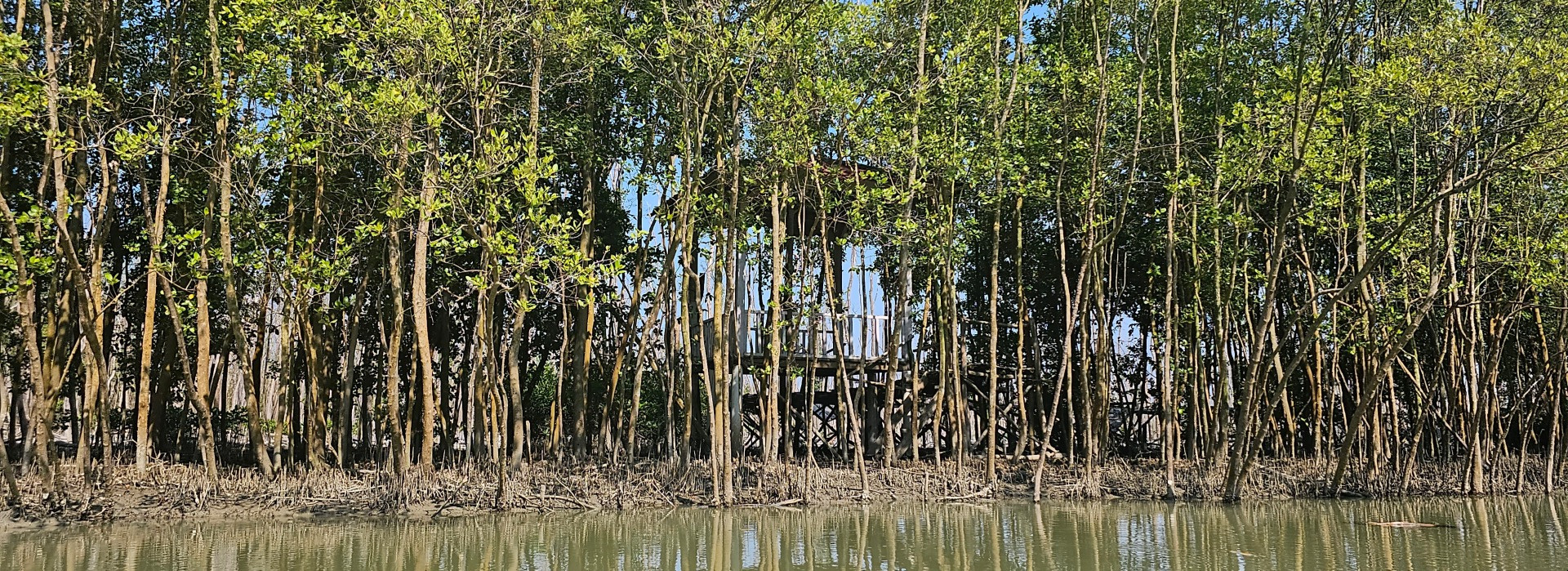Strengthening Indonesia's Ecosystem Resilience: FINCAPES' Role in Advancing Nature-based Solutions
Indonesia, home to the world's most extensive tropical peatlands and significant mangrove forests, faces critical environmental challenges from deforestation to climate change impacts. Recognizing these issues, the FINCAPES project (Flood Impacts, Carbon Pricing, and Ecosystem Sustainability) has embarked on an ambitious mission to support and enhance nature-based solutions (NbS) in Indonesia. This initiative aims to restore and protect vital ecosystems, mitigating negative climate impacts and enhancing biodiversity through innovative research and community-focused strategies.
The deterioration of Indonesia's natural resources is alarming. From the 1980s to the 2000s, the country experienced severe mangrove deforestation and peatland degradation due to commercial exploitation. The conversion of these critical habitats has led to widespread environmental and economic impacts, including massive fires in 2015, which caused approximately 100,000 excess deaths and $16 billion in damages.
Indonesia, facing environmental crises of unprecedented scale, has launched a robust response through initiatives like the Peatland and Mangrove Restoration Agency (BRGM). With ambitious targets set for 2020-2024, including the restoration of 1.2 million hectares of peatlands and 600,000 hectares of mangroves, the nation is committed to combating issues such as fire, biodiversity loss, poverty, and coastal erosion through integrated Nature-based Solutions.
However, challenges abound, particularly in mangrove restoration, where issues like replanting success and land suitability pose significant hurdles. To address these, Indonesia aims to stimulate natural recruitment and foster economic development alongside restoration efforts. A bold plan unveiled in 2016 involves rewetting peatlands by blocking off thousands of kilometers of drainage canals, resulting in the rewetting of over 200,000 hectares of land by 2017—an achievement surpassing Europe's entire history. With restoration goals extending to 2030 and spanning seven provinces, including South Sumatra, Jambi, and Papua, Indonesia's commitment to environmental sustainability is evident.
FINCAPES initiatives align with the efforts of the Indonesian Peatland and Mangrove Restoration Agency (BRGM) and the Ministry of Environment and Forestry. The project plays a crucial role in advancing Nature-based Solutions (NbS) in Indonesia through partnerships with esteemed institutions like IPB University. This collaboration strengthens academic capacity and promotes NbS education, facilitating the exchange of knowledge and skills. Central to this effort is the establishment of an NbS Applied Research Center, which conducts vital research and demonstration projects on sustainable practices for ecosystem protection and restoration. The center focuses on developing methods for reforestation and rewetting peatlands, essential for biodiversity preservation and community resilience against environmental threats.
Furthermore, FINCAPES supports interdisciplinary projects through an applied research program, providing funding of up to $15,000 CDN to address real-world environmental challenges. These initiatives prioritize practical solutions such as reforestation, peatland rewetting, and biodiversity enhancement, with collaborative efforts involving university researchers, NGOs, and community organizations, all underpinned by a strong commitment to gender equality and social inclusivity. In relation to this initiative, FINCAPES equips stakeholders with capacity development support such as training and short courses aiming to equip stakeholders with tools to develop high-quality, gender-responsive research proposals.
In addition to supporting restoration and protection initiatives, FINCAPES places a strong emphasis on actively restoring peatlands and mangroves, crucial for carbon sequestration and biodiversity preservation. These restoration projects serve as demonstration plots or labs for research initiatives, providing valuable opportunities to test innovative approaches and strategies. For instance, blocking drainage canals for peatland rewetting has already led to significant land recovery, while novel methods for natural mangrove recruitment aim to surpass traditional replanting methods. Moreover, the project prioritizes community linkages and economic development, promoting initiatives like mangrove ecotourism and supporting local industries reliant on healthy ecosystems.
This comprehensive approach significantly contributes to the sustainability and resilience of Indonesia's critical ecosystems, aligning with national climate efforts and laying the groundwork for long-term sustainability.
